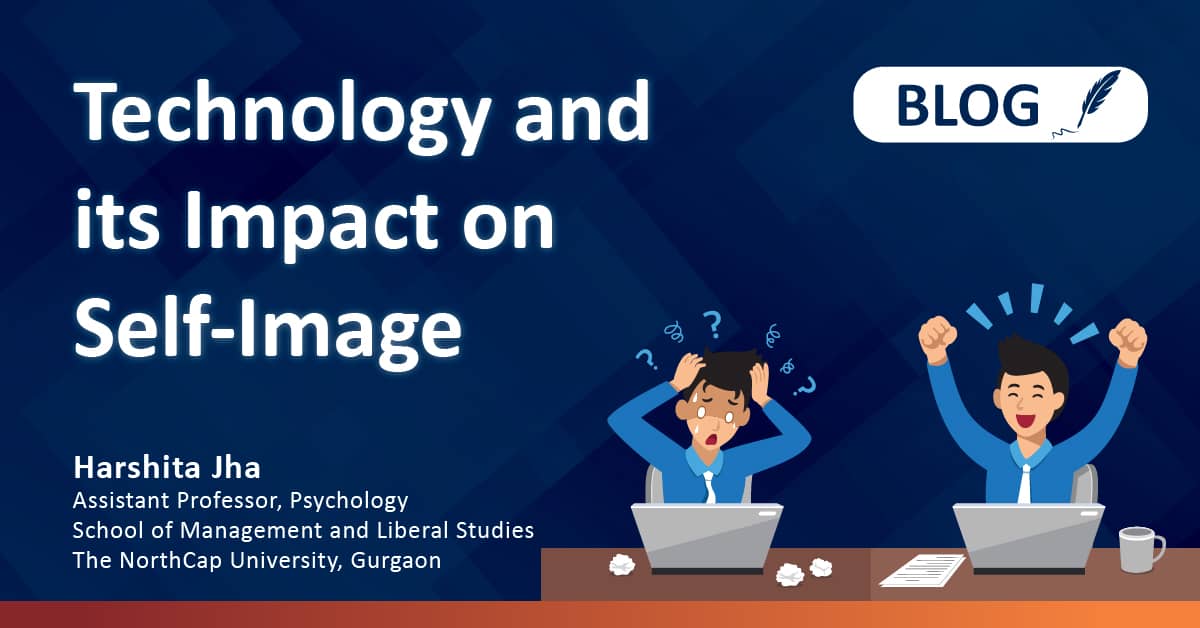TECHNOLOGY AND ITS IMPACT ON SELF-IMAGE

If there is one term that may be ubiquitous in the 21st century, it is technology. Technology, in its myriad aspects, has become an integral part of our daily lives.
We wake up with it, we sleep with it, and in between the wake/sleep cycle, we encounter it for innumerable tasks that each day holds out for us. Perhaps it would not be wrong to draw the analogy comparing daily technological gadgets to phantom organs, limbs, or forearms. Sometimes, we hear the phone ringing (when it isn’t) and panic at the thought of having misplaced or lost the technological object occupying our current consciousness.
In a nutshell, phones, laptops, multimedia screens, social media platforms, to name a few, have become an extension of our existence and reality. Today, we can assert with pride (and a hint of disdain) that modern man has achieved the unthinkable – he exists simultaneously in two realms – the real and the virtual. In this article, we discuss technology as the enabler of commonly used social media platforms of the likes – Facebook, Instagram, Twitter, WhatsApp, and YouTube and its impact on self-image.
Self-image, in simple terms, can be defined as the total subjective perception of oneself (the kind of person we think we are). A number of characteristics culminate to form one’s self-image – physical appearance, personality, skills, values, principles, strengths, and weaknesses. Self-image is a product of learning, it is influenced by the information we receive from the environment in the form of feedback received from significant others, our own past experiences, relationships, and prevalent social norms. In present times, technology provides us with a huge amount of information of every kind and type. On an average day, each individual consumes drastic amounts of media input. But technology in itself is neither the hero nor the villain.
When social networking sites like Orkut and its successor – Facebook, first became popular, people were fascinated by the possibilities it provided them – the opportunity to multiply our social circles that we would have otherwise left behind. These social network platforms appeal primarily to the basic human need for affiliation. They provide us a space to express ourselves, share our lives, capture life memories, and be and belong. So far, so good. However, what we often fail to realize is that with exposure to an extended social community, we are also increasing our vulnerability to their opinions, judgments, impressions, and, subsequently, our desire for validation.
Numerous indicate that social media use correlates to increased risks of depression, low self-esteem, loneliness, and anxiety. Some recent studies have suggested that the excessive use of ARB (Augmented Reality Beauty) filters or photo editing tools can adversely affect mental health – causing body dissatisfaction, low mood, low self-esteem, and anxiety, even encouraging unhealthy and unrealistic beauty standards. These selfie filters are being used by children as young as 13 years of age. The same social media platforms, however, are also being used to promote body positivity movements, emotional vulnerability, sensitivity to diversity, and inclusion. Positive social exchanges have the capacity to promote feelings of connectedness and support amongst their users. Thus, both the negative and positive aspects of technology merit equal consideration.
We, as human beings, have a natural tendency to look for reference points in our social contexts to evaluate aspects of our self-image. For instance, scoring 80% on a particular exam in itself might be meaningless, i.e., the number in itself does not carry much importance. It is when I compare this 80% to the scores of other students who appeared in the same exam that this number acquires a newfound label on my academic social standing. This example is a small illustration of how our evaluation of self does not happen in isolation; it is always relative to others. Once we understand the concept of self-image and its interplay with technological gadgets and platforms, we will naturally learn to consume the content and tools (that technology has so generously made available to us) with increased caution and discrimination. Technology may be inevitable, but its influence can be regulated. It is time we move away from being mere absorbers of technology to active, mindful users.
Author

Harshita Jha
Asst.Professor, Psychology, Department of SOM & LS
The NorthCap University, Gurugra
